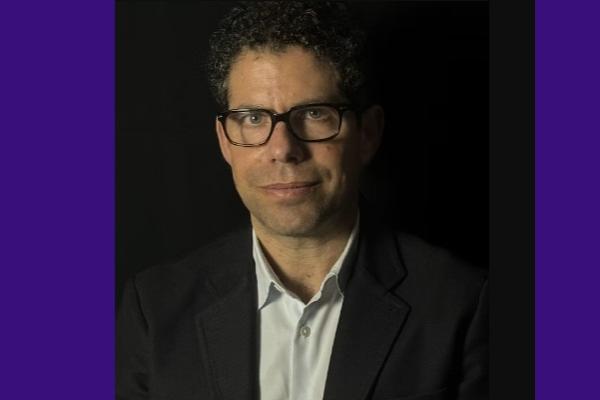Paul Reitter Named ASC Distinguished Professor

Congratulations to Paul Reitter on being named College of Arts and Sciences Distinguished Professor. The title of Arts and Sciences Distinguished Professor serves to honor full professor colleagues who have excelled in teaching, service, and research/creative activity, and whose work has demonstrated significant impact on their fields, students, college and university, and/or the public.
Paul Reitter is a specialist in German-Jewish Culture, History of Higher Education, Modernism, and History of German Antisemitism. Reitter’s scholarship focuses primarily on two areas: German-Jewish culture and the history of higher education. Of particular concern in both cases have been the links between intellectual and institutional history, the relationship of cultural crisis and cultural innovation, and the effects of technological change on humanistic culture.
Professor Reitter’s most recent notable scholarly achievement is his new translation of Karl Marx’s Capital: Critique of Political Economy, Volume 1 (co-edited with Paul North; Princeton University Press, 2024), which is already seeing significant course adoption. It is being used in the University of Chicago’s renowned core program, and at the University of California-Santa Cruz, the University of Virginia, University of California-Berkeley, New York University, Stanford University, the University of Mississippi, Washington University, Vanderbilt University, Brown University, McGill University, and Oxford University, to name several. Reitter also appeared recently on the Voices of Excellence podcast: Paul Reitter: A Capital Idea .
Reitter’s other book publications include The Anti-Journalist: Karl Kraus and Jewish Self-Fashioning in Fin-de-Siecle Europe (U of Chicago Press, 2008), On the Origins of Jewish Self-Hatred (Princeton UP, 2012), Bambi’s Jewish Roots: Essays on German-Jewish Culture (Bloomsbury, 2015), and Permanent Crisis: The Humanities in a Disenchanted Age (U of Chicago Press, 2021), coauthored with Chad Wellmon.
His works have been translated in German, Italian, Spanish, and Chinese, widely cited, and have received positive recognition by major scholars and critics. Beyond the academy, his influence extends through essays in premier literary and intellectual journals, including The New York Review of Books, The New Yorker, and Harper’s Magazine. Moreover, he won numerous academic awards including academic residential fellowships at the Franke Institute for Advanced Judaic Studies at University of Michigan, the American Academy in Berlin residential fellowship, and most recently (SP25) the Goldsmith Visiting Professor of Jewish Studies at Yale University. Reitter’s research has been supported by fellowships from the German Literature Archive (DLA) in Marbach, the Frankel Institute for Advanced Judaic Studies at the University of Michigan, the Simon Dubnow Institute for Jewish Studies in Leipzig, the Lion Feuchtwanger Archive at USC, and the American Academy in Berlin. These achievements and accolades underscore his impact on academic communities both nationally and internationally.
As director of the Humanities Institute at Ohio State (2012-2017), Reitter developed and launched a number of programs, among which were three lecture series, a faculty-led writing group for undergraduates working on a thesis, two outreach courses (this entailed partnering with Columbus’s CATCH Court program for survivors of human trafficking), and a pilot version of the Institute’s faculty working groups.
At Ohio State, Reitter teaches both graduate seminars and undergraduate courses, on topics ranging from representations of the Holocaust in German literature and film to theories of translation. He has served as a visiting professor at the Freie Uni in Berlin, Leibniz University in Hanover, the University of Bonn, and Yale University, where he was the Goldsmith Foundation Visiting Professor of Jewish Studies in the spring of 2025.
